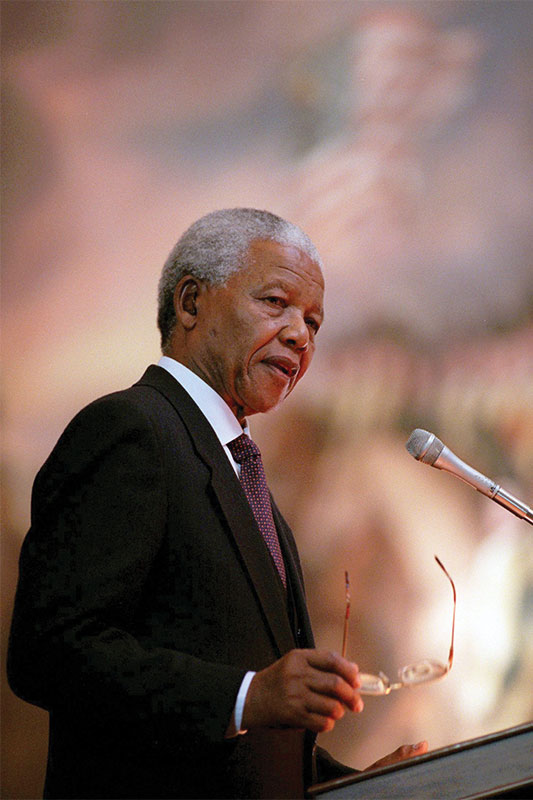
The first black South African president, an iconic human rights activist and Nobel Peace Prize winner, Nelson Mandela, died Thursday at 95.
Mandela, an advocate against racial segregation under South Africa’s apartheid, served 27 years in prison before being released in 1990. After his release, he worked with then president F.W. de Klerk to peacefully end the apartheid system and create free multiracial elections in South Africa.
In the first free election in 1994, Mandela won the presidency and became the first black president of the country. His administration sought to reunite a deeply racially segregated country and to ease inequalities.
He is admired by many as one of the preeminent civil and human rights activists of our times.
Fresno State professor Dr. Klaus Tenbergen, on sabbatical from his position as director of the culinary department, lived in South Africa during apartheid and Mandela’s rise to office. He also owned a bakery in Pretoria that Mandela frequented.
“Somehow, he must have had a taste of one of my cakes and he would come up in his limousine with security guards at least once a week to pick up his favorite coffee cake,” Tenbergen said. “In the beginning, the car would just sort of pull up and everyone would say, ‘Oh, that’s Mandela.’ At times he would roll down the window, and at times he would come in and buy it himself.”
Tenbergen remembers the apartheid as a basic fact of life before Mandela rose to power.
“When you live in a country which has apartheid, you just live and do what everyone else does,” Tenbergen said. “Right or wrong””that’s not even the question. You just do like everybody else does.”
However, Tenbergen said Mandela changed all of that and held the county together.
“That was a time where it could have gone either way,” Tenbergen said of the transition under Mandela. “It could have gone toward a country of violence or a country of reconciliation. And he was the one preaching peace. He was the one preaching reconciliation, forgiveness, and if it wasn’t for him, South Africa wouldn’t be what is today. And the world wouldn’t be what it is today. He really made it peaceful.”
Mandela’s influence is not confined solely to South Africa, though, explained Rev. David Criner, pastor of Saint Rest Baptist Church in west Fresno.
“Mandela was to the world what Dr. King was for the black community in the U.S.,” Criner said. “He was a man of action and vision.”
Criner said that Mandela embraced nonviolence at a time and in a place where people thought only violence could make change.
“He understood that in order for them [South Africans] to become one, someone had to put down the knife.”
Criner said Mandela’s peaceful tactics are what helped him in his fight for equality for all.
“He wanted nothing more than equal rights for his people,” Criner said. “He hated all race discrimination. It didn’t matter if it was black Africans discriminating against white Africans, he fought it with a smile and he fought it with love. He was a peacemaker.”
Dr. Sudarshan Kapoor, professor emeritus at Fresno State, admired Mandela’s commitment to nonviolence.
“I think that his legacy is that we can solve tough, complex problems like racial inequality and oppression in a very loving and nonviolent manner,” Kapoor said.
Although many Fresno State students may be too young to remember Mandela’s struggles against the apartheid, Kapoor said, his story is timeless.
“I think he will be remembered by generations to come just like Martin Luther King and Gandhi. He will always be remembered as a great icon who worked and sacrificed his whole life for racial understanding and racial unity.”




